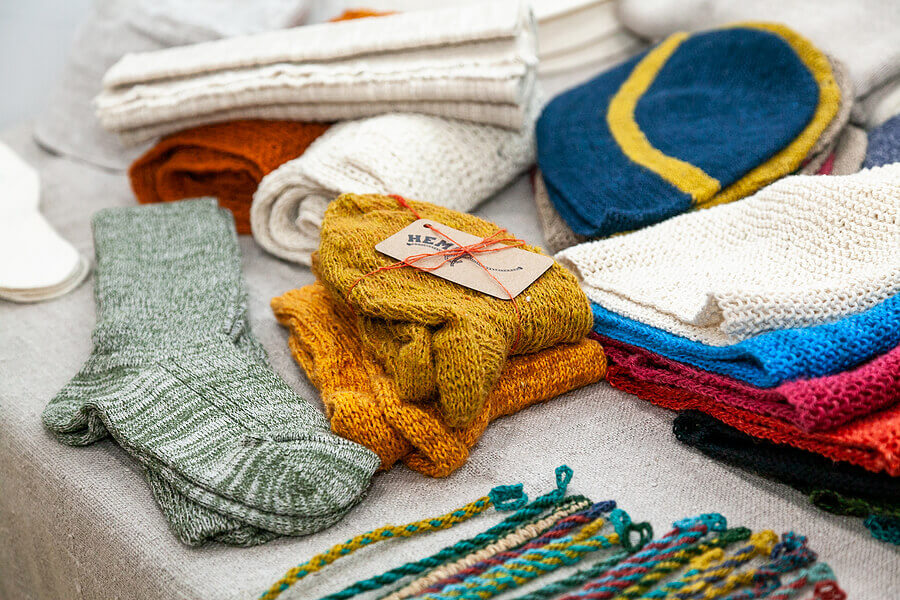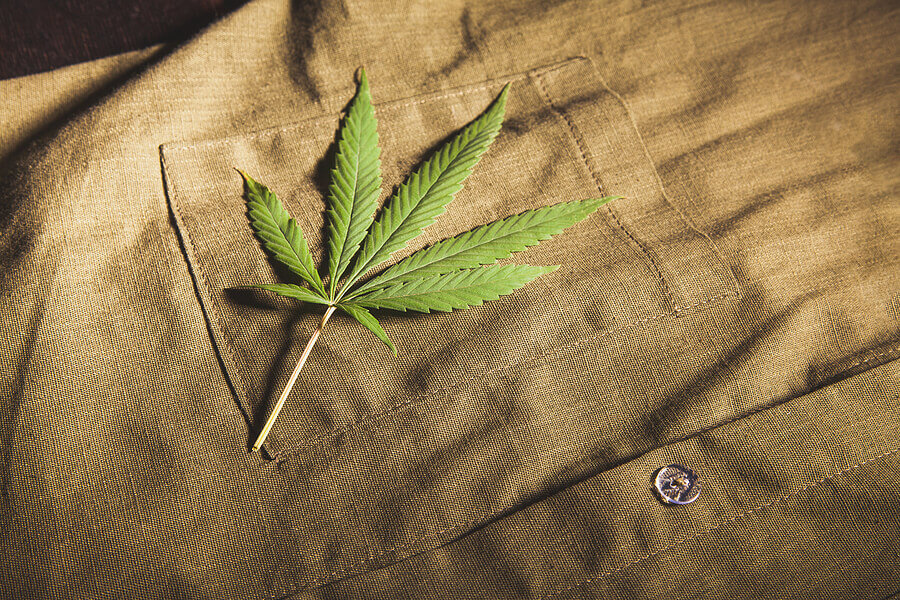Good Suggestions To Picking Bamboo Clothes
Wiki Article
Why Is Hemp Stronger, More Biodegradable, And Regenerative Compared To Cotton?
Hemp is considered more biodegradable due its inherent properties and the method in which hemp is grown. Here's why- Biodegradability-
Natural FiberNatural Fiber Hemp is a plant that naturally produces fiber, and its fibres are biodegradable. When they are discarded, hemp clothing and textiles disintegrate in a natural way, returning to the soil without generating long-lasting waste. This is in stark contrast to synthetic fibers like polyester, which take many years to degrade.
Hemp textiles don't typically have chemical treatments or additives that can inhibit biodegradability. Some cotton textiles, on the other hand could have been treated using synthetic chemicals like finishing and dyes that delay biodegradation.
Durability-
Hemp fibers have a reputation for their strength and durability. Hemp textiles and clothing are more resistant to wear than cotton, which makes them last longer. This means that hemp clothes can stand up to many washes and wear cycles prior to developing signs of deterioration.
Hemp fabric is less likely to pill than cotton. This feature contributes greatly to the durability and quality of hemp fabrics.
Regenerative Agriculture-
Soil Quality- Hemp is a regenerative plant when grown sustainably. Hemp is able to improve the quality of soil by improving soil health. The roots that are deep in hemp can prevent erosion of the soil. This aspect of regeneration can improve the soil for future crops.
Low environmental impact. Sustainable hemp production methods are typically characterized by low use of pesticides and weedicides. This helps reduce environmental damage. Contrary to traditional cotton farming, the use of synthetic chemicals could cause soil degradation and pollution of water.
Water Efficiency-
Hemp typically requires less cotton to thrive. Hemp's drought-resistant properties permit it to flourish in conditions of minimal rainfall or irrigation. It is therefore more efficient with water, particularly in regions where water resources are limited.
Hemp is a good addition to crop rotations that improve soil health and reduces the risk of disease and soil depletion. Crop rotation is not as common in traditional cotton farming.
Hemp's versatility allows it to be utilized in a variety of applications including textiles, clothing papers, building materials and paper. Hemp's versatility means that it can be used to help support many industries using eco-friendly, sustainable practices.
While hemp is a great choice for these benefits but it's important to know that both hemp and cotton can be made sustainably or in a non-sustainable manner, based on the practices of farming and processing methods. It is best to choose hemp products that are made using sustainable and ethical methods. This will maximize the environmental benefits of hemp. Similar to that selecting organic cotton products could help reduce some of the environmental problems associated with conventional cotton production. Follow the best great site about hemp clothing for blog examples including patagonia iron forge jacket, patagonia hemp shorts, hemp hoodie, hemp baja hoodie, nomad hemp clothing, women's all seasons hemp canvas bomber hoody jacket, organic hemp hoodie, women's all seasons hemp canvas bomber hoody jacket, hemp clothing womens, patagonia iron forge jacket and more.

What Makes Hemp Clothing Technical And Functionally Superior To Traditional Fibres?
Hemp clothing has a number of practical and technical advantages over traditional textiles. It's also eco green. Here are a few ways hemp clothing is a high-performance, eco-friendly alternative.
Hemp fibers are highly absorbent and moisture-wicking. It makes hemp clothes suitable to wear in a variety of conditions. They aid in wicking moisture away from your body. This can keep you cool and dry and minimize the risk of smells and bacteria.
Temperature Regulation
Hemp clothing is extremely thermoregulatory properties. It keeps you warm during cold temperatures by trapping warmth close to your body. In warm weather, it helps you stay cool by allowing heat and humidity to go away. The natural temperature regulation reduces the necessity to regularly change your clothes.
Durability and long-term durability
Hemp fibers are well-known for their strength. Hemp clothing is more durable and resilient to wear than clothes composed of other fibers such as cotton. The result is that hemp clothing can last for a longer time. It also means less need for frequent replacements.
UV Protection
Hemp fibers are a great UV shield, protecting the skin from harmful UV radiation. This feature is particularly beneficial for outdoor sports and activities.
Biodegradability:
Hemp clothing is biodegradable, which means it breaks down naturally over time when disposed of. It is a great option to reduce the waste of textiles and also the negative impact it has on the environment.
Low Environmental Impact
Hemp cultivation typically requires fewer synthetic herbicides and pesticides as compared to conventional cotton. It is also more environmentally green since it uses less. The eco-friendly qualities of organic hemp farming are even more pronounced.
Carbon Sequestration-
When they grow hemp plants are able to absorb carbon dioxide from the air. The hemp plant acts as carbon sink and reduce greenhouse gas emissions.
Sustainability and Crop rotation
Hemp is easily integrated into crop-rotation systems that improve overall soil health. It also reduces the risk of soil loss or the accumulation of disease. This sustainable farming technique can help reduce environmental impacts.
Versatility:
Hemp fibers may be blended with other substances (such organic cotton or recycled polyester) to produce eco-friendly and high performance blends of fabric. This versatility makes it possible to create environmentally sustainable and innovative textiles.
Low Toxicity
Hemp fibers are naturally low in toxicity. They do not require any chemical processing in production, which reduces the environmental impact of textile production.
The overall sustainability of clothing depends on numerous factors, such as dyeing, transportation and ethical methods of labor. If you're looking to make an an environmentally-friendly choice, look for clothing companies which are committed to transparency and sustainability by using hemp fibers and other environmentally-friendly materials in their clothing. Take a look at the best here are the findings about hemp clothes for site examples including hemp shirts, hemp yoga clothes, hemp clothing, hemp clothing wholesale, hemp clothing for men, american made hemp clothing, hemp mens jeans, hemp and cotton fabric, jungmaven clothing, hemp pants and more.

What is the difference between bamboo and hemp fibers?
Two different fibers, bamboo and hemp can be used in the production of textiles. Each of them has its own properties and unique characteristics. These are the key differences between bamboo and hemp fibers. Plant Source-
Hemp- Hemp fibers are taken from the stalks of the hemp plant, specifically from the bast fibers that are in the outer layer. Hemp is versatile, fast-growing and has been used to make various products for centuries.
Bamboo fibers are made of bamboo pulp. Bamboo is known as a species of grass with rapid growth and for its capacity to regenerate rapidly.
2. Fiber Characteristics
Hemp- Hemp's fibers are strong and durable. They're one of the strongest fibers in nature and soften each time they're washed, so they're great for creating textiles.
Bamboo fibers can be silky and soft. While they might not be as strong as hemp fibres, and are more delicate in certain circumstances but their softness on the skin is greatly valued.
3. Texture and Feel-
Hemp- Hemp fabrics have an abrasive, textured feeling when they are in their natural state. It's soft, but the texture is different from bamboo.
Bamboo bamboo fabric is smooth silky and incredibly soft. It's been described as having the feel of silk and cotton.
4. The ability to breathe and the moisture-wicking
Hemp- Hemp fabrics are naturally moisture-wicking. This allows for better air circulation, and they absorb water. They keep you cool and drier in hot temperatures.
Bamboo- Bamboo fibers are also very humid and breathable. They also have a moisture-wicking. Micro-gaps inside the fabric improve the fabric's ability to regulate moisture and temperature and allow you to remain at ease in all conditions.
5. Environmental Impact-
Hemp Hemp is a type of fiber that is considered to be eco-friendly due its requirement for little water, is able to grow quickly, and has a high resistance to pests. It also reduces the use of herbicides and pesticides. Hemp can also eliminate carbon dioxide from atmosphere when it grows.
Bamboo is one of the most popular choices for building materials that are sustainable. It grows rapidly, requires only a small amount of water, and can be grown with no chemical herbicides or pesticides. Certain varieties of bamboo are thought to be highly sustainable, such as Moso bamboo.
6. Processing-
Hemp- Hemp fibres need an extensive process to separate the out the bast fibers on the outside and the inner woody core. Processing may include retting or decortication.
Bamboo- Bamboo fibers can be made by a chemical known as the viscose or rayon process. The bamboo pulp is then broken down with chemicals. This process can be harmful to the environment if not handled responsibly. However, certain bamboo textiles use closed loop systems that reduce chemical waste.
7. Versatility-
Hemp- Hemp is versatile, with many uses including clothing, building materials and textiles.
Bamboo fibers- Bamboo fibers are primarily used in textiles and clothing but can also be found in other items such as towels and bedding.
In summary In the end, both bamboo and hemp provide unique characteristics and sustainable advantages. The choice of which one to choose is contingent on the particular qualities and properties you seek in a textile product and your preferences for the environment. See the top rated bamboo clothing blog for site advice including bamboo terry fabric, short sleeve bamboo pajamas, freefly summer hoodies, bamboo clothing wholesale, bamboo fiber t shirt, bamboo jeans, carter's bamboo pajamas, clothes made from bamboo, bamboo undergarments, bamboo trousers women and more.
